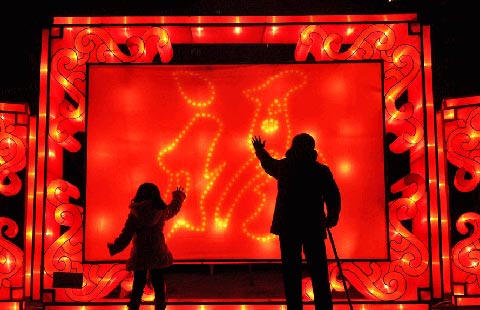Service gives hope to bereaved parents
Updated: 2014-02-14 00:25
By WANG HONGYI in Shanghai (China Daily)
|
|||||||||||
Plan offers free medical checks to mothers who lost first child
Three years after Li Xia lost her daughter in a traffic accident, her grief continues to consume her.
"She was 18, doing excellently at school and wanted to enter a prestigious university," said Li, 43, who requested an alias.
Li and her husband never enjoyed the advantages of college educations and pinned all their hopes for the future on their daughter. "But now it's all over. I often see her face when I feel lonely," she said.
The loss devastated Li and her family. On advice from relatives and friends, she decided to try to have another child. "I know I'm not young. But I still want to try, to escape the loneliness," she said.
A hotline and specialized outpatient medical service have given a flicker of hope for mothers like Li.
The city's first fertility hotline — 021-6525555 — was created by the Shanghai Charity Foundation and a local maternity hospital.
"In 2013, we opened the hotline providing free consultation for couples who lost their child and want to have another,'' said Yu Jun, a staff member at the Shidai Foundation, which runs the hotline under the Shanghai Charity Foundation. The Shidai Foundation focuses on mother and child care.
"We had many calls and we felt that it was necessary to expand the service. Then we established an outpatient service and provided financial aid," Yu said.
The outpatient service offers free tests for bereaved mothers of an advanced age, including fallopian tube X-rays, ultrasound scans and blood tests.
Li has received 30,000 yuan ($4,900) in financial aid from the Shidai Foundation, along with a series of health checks and other medical services.
According to the foundation, the funding will be done in stages. The first batch of funding is about 500,000 yuan.
Women's fertility drops once they reach 35 and assisted reproduction technology, such as in vitro fertilization, may be needed to help them conceive. This can cost about 20,000 yuan to 30,000 yuan.
There is an added urgency because the first generation of parents from single-child families are getting older, Ma Zhongqi, deputy secretary-general of Shanghai Charity Foundation, told International Channel Shanghai at the official launch of the outpatient service.
"The number of patients who want to have another baby after losing their only child has been rising steadily in recent years," said Liu Jiang, the chief physician at Shanghai Tianlun Hospital, a hospital that specializes in fertility.
She advised couples in this category to get medical advice as early as possible.
But physical barriers are not the only obstacles. There is also the psychological trauma of losing a child.
"After I lost my daughter, I lost the courage to live and attempted suicide. But my 80-year old mother helped me out of that despair and reminded that I was her daughter and how she would be able to cope if she lost me,'' said Li.
"The trauma can play havoc with our physical condition which is why it is important to try to ease the pain, no matter how difficult that may seem.''
The foundation provides psychological counseling among its services.
Couples who lose an only child also face the added burden of financial insecurity, especially in rural areas, where the child is expected to help take care of his or her elderly parents.
Figures provided by the National Health and Family Planning Commission suggest China has at least 1 million families who have lost an only child, and each year the number increases by about 76,000 families.
In the near future, up to 10 million families could be in this category, said demographer Yi Fuxian. Political advisers have called for an increase in financial support for families in this category, especially in remote underdeveloped areas.
The Shanghai Women's Federation called for the establishment of a comprehensive aid system to give support to elderly parents who have lost their only child in a proposal to the Shanghai People's Congress in February 2013.
Related Stories
Awry use of family planning rules 2012-09-14 08:07
China won't loosen family-planning policy yet 2012-09-05 17:24
Helping the helpless parents 2011-09-22 07:59
Loneliness of the single child 2011-06-01 10:11
Today's Top News
China's lunar rover comes back to life
No casualties reported in Xinjiang quake
Embassy in talks over arrest
Abe's view on history rapped
Prostitution crackdown expands in Guangdong
New visa policies a blessing for Chinese travelers
Chinese consume too much food from animals
Beijing low on list of green cities
Hot Topics
Lunar probe , China growth forecasts, Emission rules get tougher, China seen through 'colored lens', International board,
Editor's Picks

|

|

|

|

|

|





